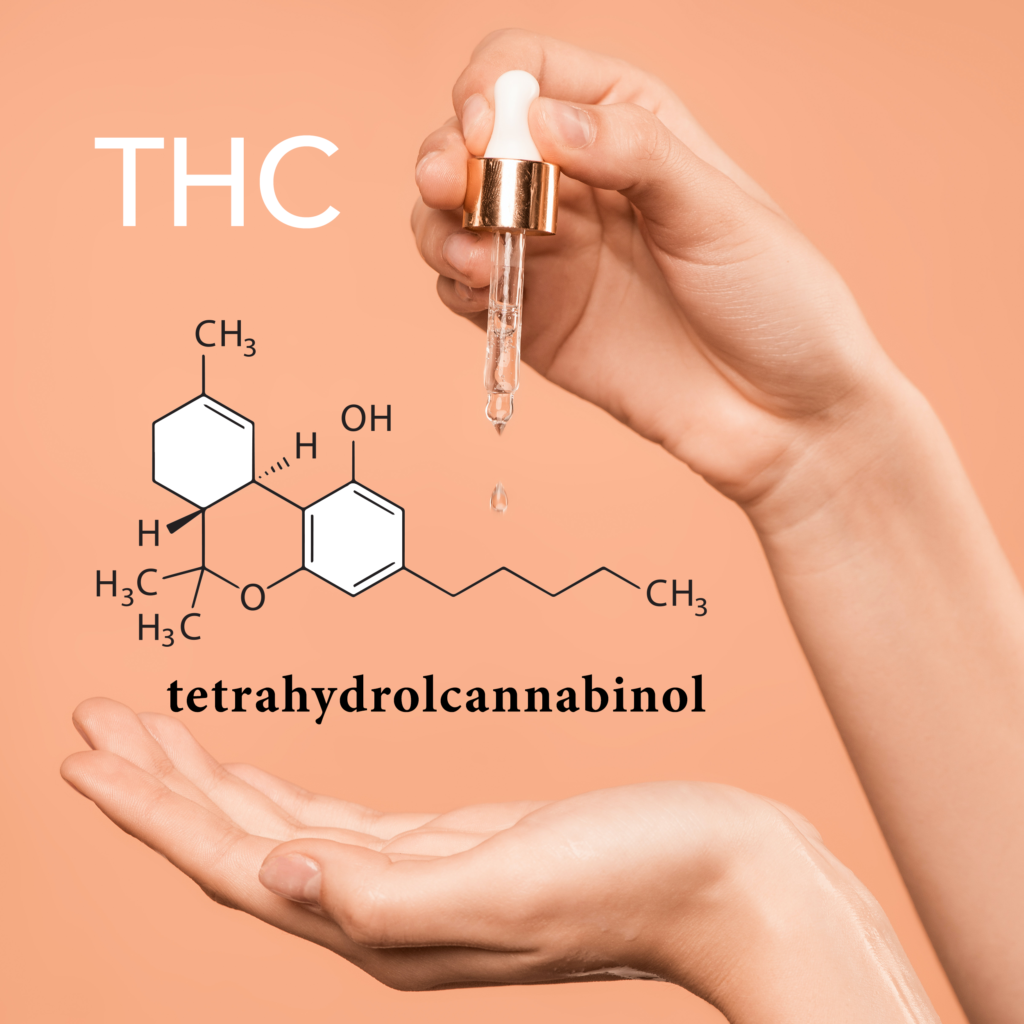How is THC Oil Made?
THC oil goes through many of the same processes as CBD oil. There are a couple of methods that are commonly used in the cannabis industry. Both end with high concentrations of THC that can be used in various products.
Solvent Extraction
Cannabis is added to a solvent, such as alcohol. Alcohol contains ethanol. Ethanol molecules consist of polar and nonpolar ends, which are efficient for extracting a wide spectrum of cannabinoids. Unfortunately, alcohol is a bit too volatile for terpenes to withstand.
As the flowers soak, their trichomes release cannabinoids into the solvent. Some manufacturers will use this alcohol-based formula as a tincture. For many consumers, alcohol is a bit too abrasive. In that case, the alcohol gets heated off, leaving behind a phytocannabinoid-rich extract.
What’s left is a resin that has a sticky texture with a very dark honey hue. It can be sold as a concentrate for vaping. However, manufacturers can also combine the extract with healthy fat, such as MCT oil, to make a tastier tincture.
Carbon Dioxide Extraction
High-end THC oil companies will use CO2 extraction. This method maintains the integrity of terpenes in the formula. Therefore, following this practice supports the entourage effect.
Performing CO2 extraction also allows manufacturers to isolate specific cannabinoids. Some companies will use this process to create THC isolates used in crystallines.
In the same respect, CBD companies can benefit from this same method. Astir uses CO2 extraction to maintain the integrity of all the other phytocannabinoids and terpenes. It also allows us to isolate and remove THC from our CBD oil more effectively.
How to Use THC Oil
There are many ways to use THC oil (also sold under numerous names, including cannabis oil and marijuana oil). Here are some of the different ways THC oil is used in products.
THC Capsules
The most common way to consume THC is through THC capsules. Much like edibles, capsules take a while to kick in. When your body breaks down the capsule, liver enzymes interact with a THC metabolite, 11-hydroxy-THC. This interaction makes for a prolonged experience. Therefore, using THC pills might be intense for casual marijuana users.
THC Drops
You can also use THC oil like CBD oil. Place drops in the mouth for a quick serving of THC. You can also incorporate these drops into skincare routines. Just add a few drops to your shampoo or body wash.
THC Concentrate
THC concentrates go by many names, including cannabis extracts, honey, and butter. These potent extracts can fill vaporizers, pens, and dab rigs. Due to their high concentration of THC, these products should only be consumed by cannabis enthusiasts.
Is THC Oil Legal?
THC oil is derived from marijuana, which is a schedule 1 narcotic under federal law. While there have been many attempts to change this status, marijuana is still illegal in almost half of the country. Therefore, THC oil might be illegal where you live.
THC oil is legal in states that have a recreational program. You may also be able to purchase THC oil through your state’s medical marijuana program. Availability depends on local laws.
How to Make THC Oil
If you have the right equipment, you can make your own THC oil at home. You will need a lot of cannabis to make THC oil. So, you should only perform this tutorial if you live in a state with recreational marijuana legislation or have a valid medical marijuana license.
THC Oil Cannabis Strains
Most companies and DIY THC oil makers use the method created by the person who put THC oil on the map: Rick Simpson. This method is called Rick Simpson Oil (RSO).
The RSO method suggests the best THC oil is made with indica strains of marijuana over sativa. Indica creates a more subdued effect on the endocannabinoid system. Think about when you’re feeling under the weather. Your body needs rest. So, using a downer strain like an indica instead of an upper like a sativa can offer better support towards optimal wellness.

